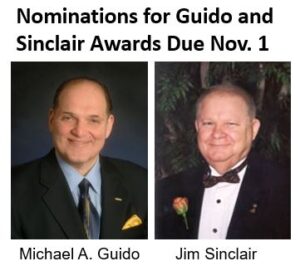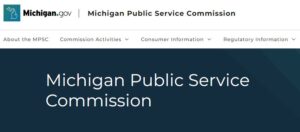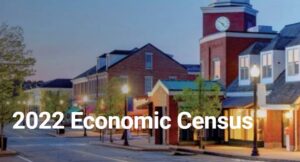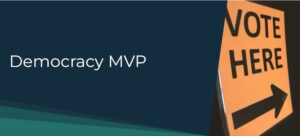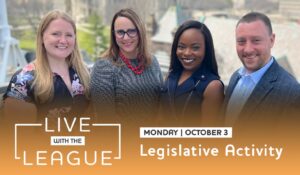The new Michigan Spark Grants program includes $65 million specifically for local parks and aimed at improving and redeveloping existing public outdoor recreation in communities that have 1) faced barriers to accessing such funding, and 2) experienced negative effects from the COVID-19 pandemic. The program welcomes applications starting Oct. 24. If you’re planning to apply, here are tips to get you started.
Three things to do right now
There are always some housekeeping details required of all grant applicants, those little things that help the grantmaking authority move and track applications and funding throughout the process. Anyone applying for a Michigan Spark Grant will need to do these three things before submitting an application:
Save the date: Oct. 28 webinar
There’s a lot to know and a lot to do! Preparing a grant application, especially for anyone new to the process, can feel overwhelming. Well, brush aside those concerns and mark your calendar for 10:30-11:30 a.m. (Eastern) Friday, Oct. 28, because the Department of Natural Resources (DNR) is hosting a webinar to explain the process, answer your questions and ease any application anxiety. Click here to register.
Watch the web for timeline, FAQs and other news
For full details on all of these topics, follow the Michigan Spark Grants webpage. Over the next few weeks, the DNR will be adding a thorough program overview, details on scoring criteria, webinar specifics, key dates (including the Dec. 19 application deadline), updated FAQs and other information to keep you on track. Below are helpful links that can provide additional assistance as you prepare your application.
About the program
It’s a milestone moment for outdoor recreation in Michigan: a $65 million grant program to help local communities that want to create, renovate, or redevelop public outdoor opportunities for residents and visitors—especially those whose economic opportunities and health were hardest hit by the COVID-19 pandemic.
Administered by the DNR, Michigan Spark Grants will support projects that provide safe, accessible, public recreation facilities and spaces to improve people’s health, introduce new recreation experiences, build on existing park infrastructure, and make it easier for people to enjoy the outdoors. This grant opportunity is possible because of the Building Michigan Together Plan, signed in March 2022, which included a historic infusion of federal funding in our state and local parks.
Want to stay informed? Sign up for our recreation grants list to receive email updates when there is news to share.
Program goals
- Leverage federal, state, local and private resources toward a sustainable public recreation development program.
- Provide a clear, simple and equitable grants distribution process in support of public outdoor recreation.
- Align project partners and community organizations so resources are maximized, and roles and responsibilities are clearly outlined and balanced.
Addressing community need
The Michigan Spark Grants program is aimed at helping improve and redevelop existing public outdoor recreation in communities that have historically experienced barriers to accessing these types of grants. Funding priority will be given to areas with a high proportion of households that are struggling financially, a high number of residents with physical and mental disabilities, and a lack of public recreation opportunities.
Eligible applicants
- Applicants must be local units of government or public authorities legally established to provide public recreation.
- Applicants may include a regional or statewide organization or consortium of local units of government or public authorities legally established to provide public recreation.
- An eligible financial match is encouraged but not required.
- A community planning process is encouraged but not required.
Eligible projects
- Projects must support and enhance neighborhood features that promote improved health and safety outcomes or address the increased repair or maintenance needs in response to significantly greater use of public facilities in local communities that have been adversely affected by the COVID-19 pandemic.
- Projects may include the development, renovation or redevelopment of public recreation facilities, and the provision of recreation-focused equipment and programs at public recreation spaces.
- Funds may be used for activities such as, but not limited to, project review, planning, architecture and engineering services, construction, oversight and compliance activities associated with state and federal requirements, as applicable.
- Projects must be completed by Dec. 31, 2026, on public land with the primary purpose of providing outdoor recreation.
Application scoring criteria
Applications that address existing park infrastructure will be given priority. Consideration will be given to applications that complete critical trail projects or provide access to new opportunities that currently don’t exist within a local community. Scoring will be based on the following criteria, listed in order of priority:
- Public benefit and anticipated outcomes
- Financial and social considerations
- Access to project site
- Access to new opportunities for people of all abilities
- Clarity of scope and ability to execute
- Renovation and long-term maintenance
Available funding
A total of $65 million of coronavirus state and local fiscal recovery funds was made available through Public Act 53 of 2022. Individual grant amounts – ranging from a minimum of $100,000 to a maximum of $1 million – will be distributed in three rounds:
- Round one: $15 million during the week of Jan. 30, 2023.
- Round two: $25 million in spring 2023.
- Round three: $25 million in summer 2023.
If you’re not finding answers to your questions in this blog or on the Spark Grants webpage, please reach out to the League’s ServeMICity Program or email DNR-Grants@Michigan.gov for assistance.
John LaMacchia is the League’s director of state & federal affairs. He can be reached at jlamacchia@mml.org or 517-908-0303.

